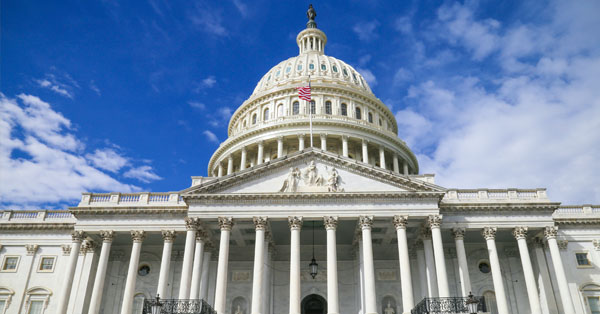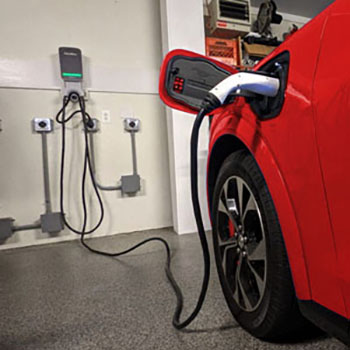
Federal Tax Credit for Residential EV Chargers
If you install an EV charger for your electric car in your home, you may want to take advantage of the federal tax credit. The Federal 30C Tax Credit was renewed as part of the Inflation Reduction Act (IRA) of 2022. It provides a valuable incentive for installing EV charging-related hardware.

How much is the US federal tax credit for EV chargers?
The federal tax credit covers 30% of an EV charging station, necessary equipment and installation costs. For residential installations, the IRS caps the tax credit at $1,000. Unlike some other tax credits, this program covers both EV charger hardware AND installation costs. Since installation costs are significant for EV chargers, this rule allows you to get the most tax credit for your new EV charger. It does not include other costs such as permitting and inspection fees.
Chargers installed after December 31, 2022 must be installed in an "approved census tract" in order to qualify for the tax credit. These tracts are typically rural or lower-income areas. According to the White House, 2/3 of Americans should still qualify for the 30C Tax Credit. Use the tool below to determine your eligibility.
DOE 30C Tax Credit Eligibility ToolWhich EV chargers does the US federal tax credit cover?
The federal tax credit does not specify a specific type of equipment. Here are some chargers that would qualify:
How do I claim the US federal tax credit for EV chargers?
You claim the credit on your Federal tax return by completing a form 8911 (see the form here). You can also review the guidance from the IRS at this site (IRS Guidance 8911) or consult your tax advisor. Unfortunately, these documents have not yet been updated to reflect the new legislation, but they should be in the near future. Make sure to keep receipts for the equipment and installation of your EV charger.
How long is the US federal tax credit for EV chargers good for?
To receive the federal tax credit for installing an EV charger in your home, you must purchase and install the charger by December 31, 2032.
The tax credit is retroactive, so you can apply for this credit for EV chargers installed as far back as 2018. For older installations, you may have to file an amended return to get your tax credit.
How is a tax credit different from a tax deduction?
A tax credit is a dollar-for-dollar reduction of your tax liability. That means if you received a tax credit of $1,000, it would decrease the tax you owe by $1,000. A tax deduction is subject to your tax rate. So if you received a tax deduction of $1,000, and you fall into the 22% tax bracket, the deduction would save you $220. The bottom line is that a tax credit is usually much more valuable than a tax deduction.
Where can I learn more about the Federal Tax Credit for EV Chargers?
You can read more about the Alternative Fuel Infrastructure Tax credit on DOE's website. It has not yet been updated to reflect the passing of the Inflation Reduction Act.
View the 30C Tax Credit Details on the IRS WebsiteDisclaimer: Please consult with your tax professional to see how these credits apply to you. Rebates4EVChargers provides this information as a resource, and it does not constitute tax advice. As an Amazon Associate, Rebates4EVChargers may earn commissions from qualifying purchases.

Additional information
Next Generation of EV Chargers Shown Off at CES
At this year's Consumer Electronics Show (CES), we saw some exciting new models of home EV chargers with new features and faster charging ability.
Continue reading
EV Charger Rebate Trends for 2025
Despite recent changes in federal policy and rising uncertainty, rebate programs remain a powerful opportunity for those who can navigate them effectively. In fact, the number of open rebate programs increased by 11% this year. Those programs cover 78% of the US.
Continue reading